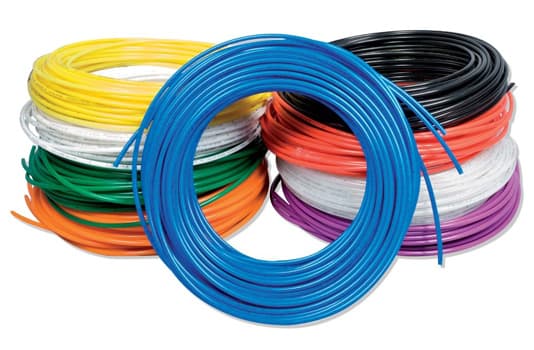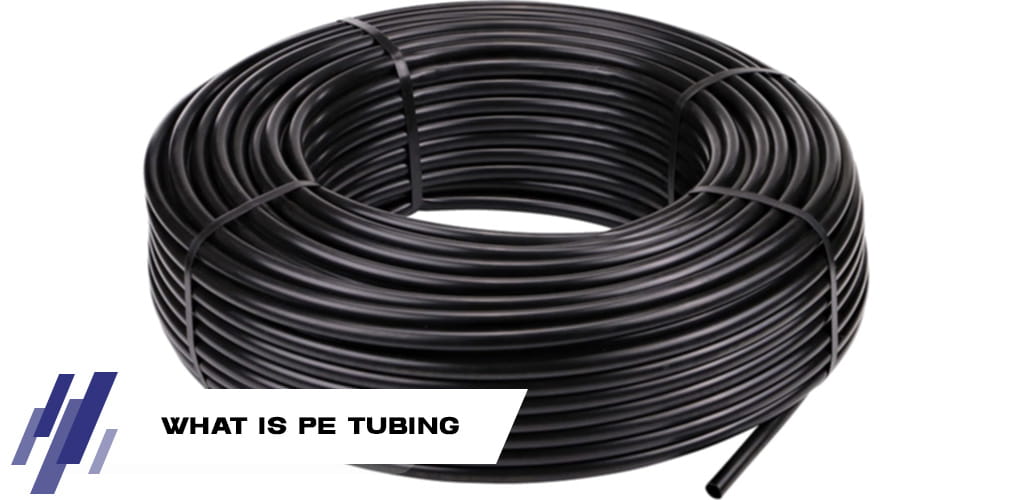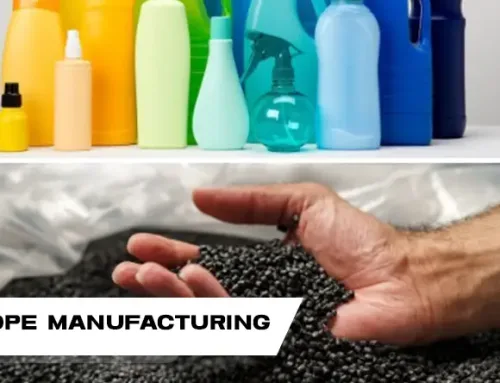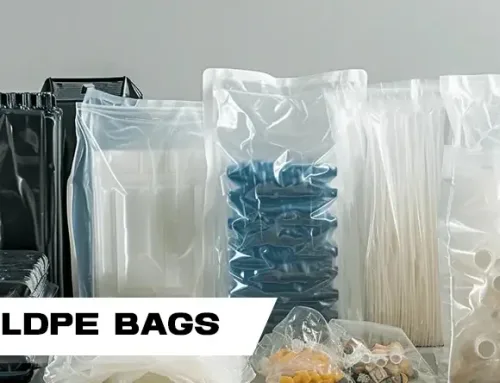Polyethylene tubing, widely known as PE tubing or p.e tubing, is a cornerstone of modern fluid and gas transfer systems. It’s a highly versatile type of plastic tubing used across countless industries, from agriculture to advanced medical science. But what is PE tubing exactly? At its simplest, it’s a durable, flexible, and lightweight piping solution prized for its exceptional resistance to moisture, chemicals, corrosion, and physical damage like cracks or punctures. Its development marked a significant shift away from traditional metal and rigid plastic piping, offering a more efficient and cost-effective alternative. This guide explores everything from the intricacies of pe tube material to the vast range of common polyethylene tubing uses, helping you understand why this material is a top choice for so many applications.
What is Polyethylene Tubing? A Closer Look at the Material
At its core, polyethylene tubing is a pipe or hose made from polyethylene, a thermoplastic polymer created through the polymerization of ethylene gas. This process links ethylene molecules into long, chain-like structures, resulting in a stable and robust material. This fundamental information answers the basic question, “polyethylene tubing what is it?” The specific properties of the polyethylene pe tubing, such as its flexibility, strength, and temperature resistance, can be precisely controlled by varying the density of the material used during manufacturing.
The pe tube material is typically one of three main types, each with distinct advantages:
- Low-Density Polyethylene (LDPE): Produced under high pressure, LDPE has more branching in its molecular chains, which prevents them from packing tightly. This results in a highly flexible, tough material. It’s known for good clarity and moisture resistance, making it ideal for pneumatic lines, beverage tubing, and packaging films.
- High-Density Polyethylene (HDPE): Created at lower pressures, HDPE has minimal branching, allowing its molecular chains to pack closely together. This creates a denser, more rigid, and stronger material. While less flexible than LDPE, HDPE is lightweight yet incredibly robust, making it suitable for demanding industrial uses like chemical pipelines, water mains, and protective jacketing.
- Linear Low-Density Polyethylene (LLDPE): LLDPE combines the best of both worlds. It offers more strength and stress-crack resistance than LDPE while maintaining excellent flexibility. It is designed for applications requiring repeated flexing or where greater durability is needed without sacrificing ease of installation. It is non-toxic and often conforms to FDA requirements, making it a popular choice for food-grade tubing and environmental applications.
A specialized variant is PE-RT tubing (Polyethylene of Raised Temperature resistance). So, what is pe-rt tubing? It’s an advanced form of PE with a unique molecular structure that allows it to withstand higher temperatures (up to 180°F or 82°C) and pressures without cross-linking. This makes it a direct competitor to PEX tubing and ideal for demanding applications like domestic hot and cold water supply lines, radiant floor heating, and snow-melting systems.

Key Characteristics and PE Tubing Specifications
Understanding the core features of a polyethylene tube is key to appreciating its wide range of applications and advantages over traditional materials.
Flexibility and Lightweight Design
One of the most significant advantages of a poly tube is its flexibility. This simplifies handling and installation, dramatically reducing the need for elbow fittings and allowing the tubing to be easily routed around obstacles and in tight spaces. This inherent flexibility can lower overall project costs by reducing both material needs and labor time. Its lightweight nature further streamlines projects by reducing transportation costs and the physical strain on installation crews, often allowing for manual installation without heavy machinery.
Superior Chemical and Corrosion Resistance
Unlike metal alternatives such as copper or steel, polyethylene tubes are inert and do not rust, scale, or corrode. This longevity significantly lowers maintenance and replacement costs over the product’s lifespan. Its molecular structure makes it highly resistant to a broad spectrum of chemicals, including most acids, alkalis, saline solutions, and organic solvents. This makes it a reliable choice for transporting various substances without risk of material degradation or contamination of the fluid being transported.
Is Polyethylene Tubing Food Safe?
A common and critically important question is, “is polyethylene tubing food safe?” The answer is a definitive yes, provided it is sourced correctly. Many types of polyethylene tubing, particularly those made from virgin LDPE and LLDPE resins, are manufactured to be non-toxic and FDA-compliant. This means they meet the stringent standards of the FDA (such as 21 CFR 177.1520) for direct contact with food and beverages, ensuring they don’t impart any taste, odor, or harmful chemicals. This makes polyethylene tubing food safe for applications in the food and beverage industry, as well as for medical and laboratory use where purity is essential.
Common PE Tubing Sizes and Fittings
Proper system design requires choosing the right size and connectors. PE tubing sizes vary widely to suit different flow rates and pressure needs, from small-diameter lines for pneumatics to large pipes for municipal water systems. A pe tubing size chart from a supplier is an essential tool for selecting the correct outer diameter (OD) and wall thickness for your application.
One of the most ubiquitous sizes is 1/4 OD polyethylene tubing, frequently used in residential water filtration systems, ice makers, beverage dispensers, and laboratory equipment due to its ideal balance of flexibility and flow capacity.
To create a secure and leak-proof system, you’ll need the right pe tubing fittings. These connectors are specifically designed to work with the flexibility of a polythene tube. Common styles include:
- Push-to-Connect Fittings: Allow for rapid, tool-free installation.
- Compression Fittings: Provide a highly secure, leak-proof seal for higher-pressure applications.
- Barbed Fittings: Used with clamps to create a firm connection, often in low-pressure liquid or pneumatic systems.
Answering “What is Polyethylene Tubing Used For?”
The applications for polyethylene tubing are incredibly diverse, spanning residential, commercial, and industrial sectors. Here are some of the primary polyethylene tubing uses in greater detail:
- Food and Beverage Industry: Used extensively for transferring liquids like water, juice, syrups, and dairy in processing plants. Its non-toxic, FDA-compliant nature is critical. It’s also used for materials related to clear poly tubing plastic bags for food storage.
- Medical and Laboratory: Employed in medical devices, diagnostic equipment, and fluid transfer systems where sterility and chemical inertness are paramount. It’s used for catheters, peristaltic pumps, and lines for deionized water.
- Agriculture and Irrigation: A ply tube or what is pe hose is the backbone of modern farming. It’s used for drip irrigation lines, micro-sprinkler systems, and main supply lines due to its durability, UV resistance, and flexibility over uneven terrain.
- Water Purification and Plumbing: Ideal for reverse osmosis systems, water conditioners, and residential plumbing. Its impermeability prevents contamination, and its smooth interior surface minimizes pressure loss and resists mineral buildup.
- Chemical Transfer: Safely moves various chemicals in industrial settings, from plating shops to manufacturing plants, without the risk of corrosion or material breakdown.
- Pneumatics and Automation: Its flexibility and low cost make it a top choice for low-pressure pneumatic control lines in factory automation and machinery.


Polyethylene Tubing vs Vinyl: Which is Better?
When choosing a what is plastic tubing, a frequent comparison is polyethylene tubing vs vinyl (PVC) tubing. While both are excellent, they have key differences that make them suitable for different jobs:
| Feature | Polyethylene (PE) Tubing | Vinyl (PVC) Tubing |
|---|---|---|
| Flexibility | More flexible, especially LDPE and LLDPE. | Generally more rigid, though flexible versions exist. |
| Chemical Resistance | Excellent resistance to a wide range of chemicals. | Good resistance, but can be vulnerable to some solvents. |
| Pressure Rating | Varies by density; HDPE has a high-pressure rating. | Typically has a higher pressure rating for the same size. |
| Cost | Generally, more cost-effective. | It can be slightly more expensive. |
| Common Uses | Fluid transfer, irrigation, food/beverage. | Plumbing, structural applications, high-pressure lines. |
Ultimately, the choice depends on the specific requirements. For flexibility and broad chemical compatibility at a lower cost, PE is often superior. For higher pressure, structural integrity, and better UV resistance, PVC might be the better choice.
Finding a Reliable PE Tubing Supplier
When sourcing polyethene tubing, it’s crucial to partner with a reputable pe tubing supplier. A quality supplier will offer a wide range of pe tubing sizes, materials (LDPE, HDPE, etc.), and colors, backed by strong technical support. Look for suppliers who can provide detailed pe tubing specifications, technical data sheets, and a clear pe tubing size chart. Certifications like NSF for potable water or ISO for manufacturing quality are strong indicators of a reliable partner.
For businesses looking to buy in bulk, finding a supplier that offers wholesale price pe tubing can lead to significant savings. While searching, you’ll find that the pe tubing price is generally very competitive, making it a source of low price pe tubing compared to materials like rubber, silicone, or metal.
conclusion
In summary, poly tubing stands out as a versatile, reliable, and highly cost-effective solution for fluid and gas transport. Its unique combination of flexibility, durability, and chemical resistance makes it a superior choice for everything from complex agricultural irrigation networks to advanced medical devices. By meeting critical health and safety standards, this pet tubing (a common typo for PE tubing) ensures reliability in the most sensitive applications.
As industries continue to innovate and demand more efficient, sustainable, and long-lasting materials, the role of the humble polyethylene tube is set to expand. Its adaptability and proven performance cement its role as an essential component in modern manufacturing, healthcare, infrastructure, and beyond.






I have been examinating out many of your articles and it’s clever stuff. I will definitely bookmark your website.